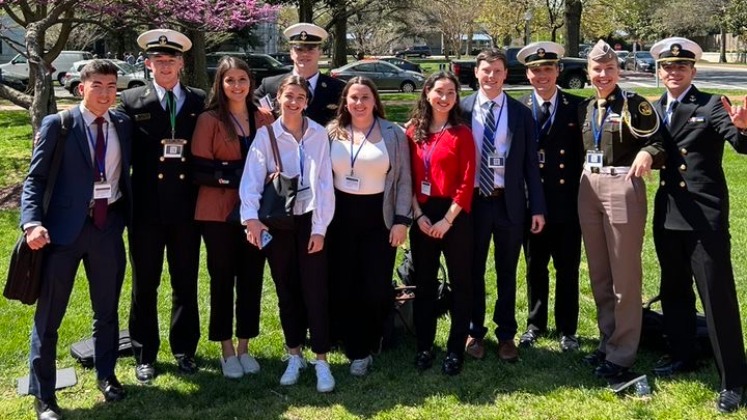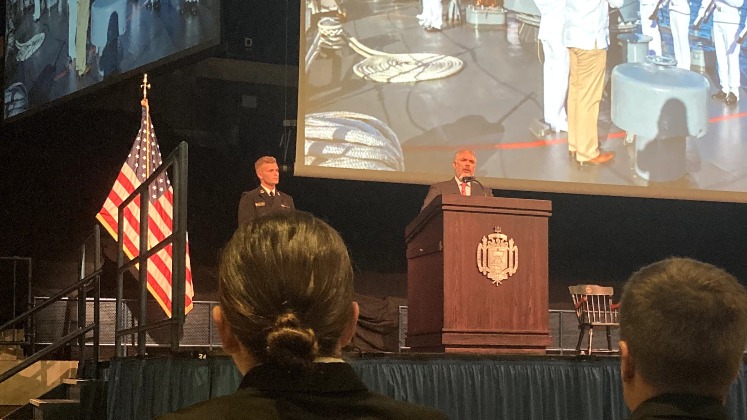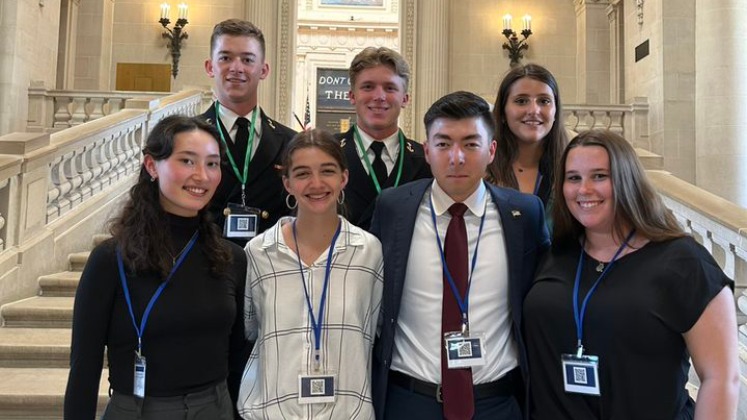Report by Morgane Lecomte, BSc International Relations, 3rd year
From 11–13 April 2023, fellow 3rd year BSc IR undergraduate Miksa Jordan and I had the honour of attending the US Naval Academy Foreign Affairs Conference (NAFAC) in Annapolis, Maryland. The NAFAC aims to bring undergraduates from civilian and military institutions across the US and internationally to discuss relevant political issues.

Roundtable group
The theme for this year’s conference was “Democracies Divided: The Proliferation of Polarization”. This relates to authoritarian threats, democratic backsliding, and the lack of a coherent response between and within liberal democracies. The speakers gave their views on the roots of polarization, discussing in particular economic disparities and cyber technologies, regional manifestations of the phenomenon, and possible responses. I thought the last panel, titled “Strengthening Democracy in the 21st Century” was very engaging as the speakers were all previously practitioners in international security. Ambassador Roman Popadiuk, Mr Mark Polymeropoulos (former CIA) and Dr Miles Yu debated the best ways for the US to cooperate with its allies, ensure its own security, and respond to the threats posed by Russia and China. The Conference’s Forrestal Address was delivered by Iván Duque Márquez (former President of Colombia), who gave a passionate and memorable speech intended as a lesson in leadership for all the midshipmen.

Former President of Columbia Iván Duque Márquez giving the Forrestal Lecture
With many round tables focused either on China, Russia, or cyber technologies, I really enjoyed being part of the “Public dissension during times of war” group because it allowed us to approach the topic of domestic and international polarization from a different perspective. We also got to participate in the midshipmen’s daily lives, eat lunch in King Hall, and learn about their career aspirations and what led them to join the Navy. The education offered at the USNA is clearly very comprehensive, and it was so interesting to hear their own perspectives on the theme of the NAFAC and how they think that will affect the future of the international order and their own future.

Roundtable group
Overall, it was a successful and thought-provoking exchange and a great opportunity to meet students from around the world. I would recommend the experience to any IR students. I would also like to extend my gratitude to the IR department for funding and organising my travels to the US.
The trip was made possible through funding by the Department of International Relations, LSE.


